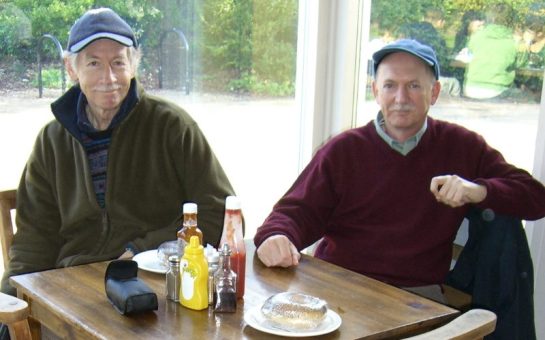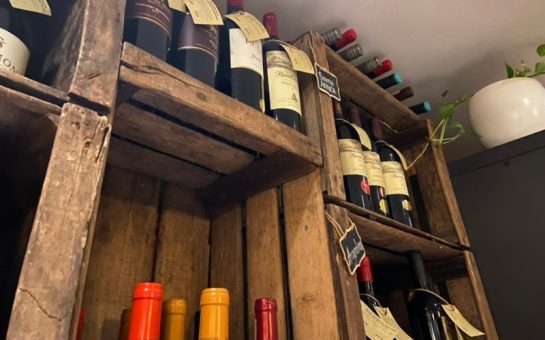Can English wine compete with wine-producing greats like France?

In the mid 19th century botanists from Victorian England collected a number of vine specimens from America. Little did they know, the soil they were in carried a deadly disease.
These imported vines started to deteriorate in 1863 in the south of France.
The Phylloxera epidemic almost destroyed the vineyards of Britain, and it continued to spread destroying most of the European grape-growing industry.
The vines of North America, where the samples were taken from, had become partially resistant to these insects.
Fortunately, grape growers faced with this problem soon came up with a solution.
The vines of the plants grown here were grafted onto the rootstock of a native North American vine. In other words, we used the base of a resistant vine and got our vines to grow on top of this base. It was then able to withstand the insect now living in our soils.
Today there are still huge challenges faced by English grape growers. And there is no surprise as to why this is. If you can’t imagine relying on English weather to make a living, this probably isn’t for you. And this means there is even more reason to enjoy and appreciate English wine.
My personal experience of wine, until this week, had consisted of drinking so much of the horrible stuff that you can’t taste it anymore, or occasionally drinking nice wine with my parents.
I always wanted to know more about wine. But a 21-year-old student rarely has the time or money to pursue such things.
This week I tried my first English wine on a gift experience with my Mum. It involved a tour of the vineyard at Chilford Hall, Linton, and a wine tasting session. Truth be told I wasn’t expecting much, especially since there aren’t even any grapes to pick at the end of October.
Statistically, conditions in England mean we should be able to grow the same wines as in the north of France. Unfortunately, this year the weather has been particularly bad, but this hasn’t stopped top quality English wine being produced.
We had a great time, and enjoyed a tour around the vineyard, a visit to the wine making house and a tasting session. To admit that I didn’t realise vines looked like trees with branches at the bottom would be embarrassing…
I genuinely enjoyed the white wines we were presented with. They were everything you would enjoy in a French Pinot Grigio or New Zealand Sauvignon Blanc (my favourite before the tour). To think that so few people have ever tried English wines is crazy when you realise the effort put in and the quality you get.
“We want people to think English and drink English because it is exceptional,” said Glen Mejias, General Manager and Director of Chilford Hall.
And the English sparkling wine I tried is second to none. It has been outshining Champagne and I can certainly see why.
“We are coming up with some of the very best wines of an international standard,” said Vanessa Chamberlain, manageress who also takes the tours and wine tasting.
After taking the risk and succeeding in growing the rather tricky Pinot Noir grape, Chilford Hall’s unique blend in the Chilford Hundred Sparkling White 2009 won them the prestigious East Anglian Wine of the Year 2012.
And if growing English wine sounds like a challenge, you then have the difficult task of selling it to English people.
I came across the Wine Pantry after doing some research, and found it won the Specialist Wine Merchant of the Year at the Decanter World Wine Awards 2012 last month.
I met up with the owner, Julia Stafford, to find out how she had made a success out of selling a type of wine many don’t even know exists.
As is the precarious nature of growing wine grapes in England, making a business selling only English-produced wine also presents its challenges. But what Julia showed me, like the grape growers of England, is that challenges and problems can change your direction in a positive way and strengthen a business plan.
After university Julia worked on the shipping side of the oil and gas industry but soon developed an interest in sustainability.
At the time she was looking to make the transition to renewable energy and move abroad. However, she was burgled, losing sentimental items that included her grandmother’s engagement ring. It was at this point she decided to try and make things better at a local level where she felt she could have the greatest impact.
“I looked at my neighbourhood and what I could do to improve the area while implementing my interest in sustainable practice,” she said.
“It was at this stage I considered buying my local pub and turning it into an exclusively British restaurant with locally sourced traditional food and drink and provide to environmentally friendly accommodation. To prove the business case of doing so and create a platform for artisan producers.”
With British food having made a recent resurgence and a growth in locally brewed beers and distilled spirits she raised considerable interest amongst investors. The one sticking point with them was the English wine.
Julia stuck to her guns determined to demonstrate that it could be done and successfully, changing her business plan to sell exclusively English wine out of a tiny shop in Borough Market.
In May 2011 she opened Wine Pantry, in Borough Market, and just a year later found it had been nominated for the Decanter award. She was delighted to hear that her eight square-metre of shop had won.
Sixteen months later, and with several awards under her belt, she is hoping to open her second shop and revisit the original business plan by expanding her range to include exclusively British beers, spirits and other produce.
The Wine Pantry is opening a second shop in King’s Cross St Pancras in December with the campaign ‘front line English wine sales to the French on the Eurostar’. You can find out more on their website: www.winepantry.co.uk
For more information about Chilford Hall Vineyard and their tours, call them on 01223 895600
Follow us on @SW_Londoner




